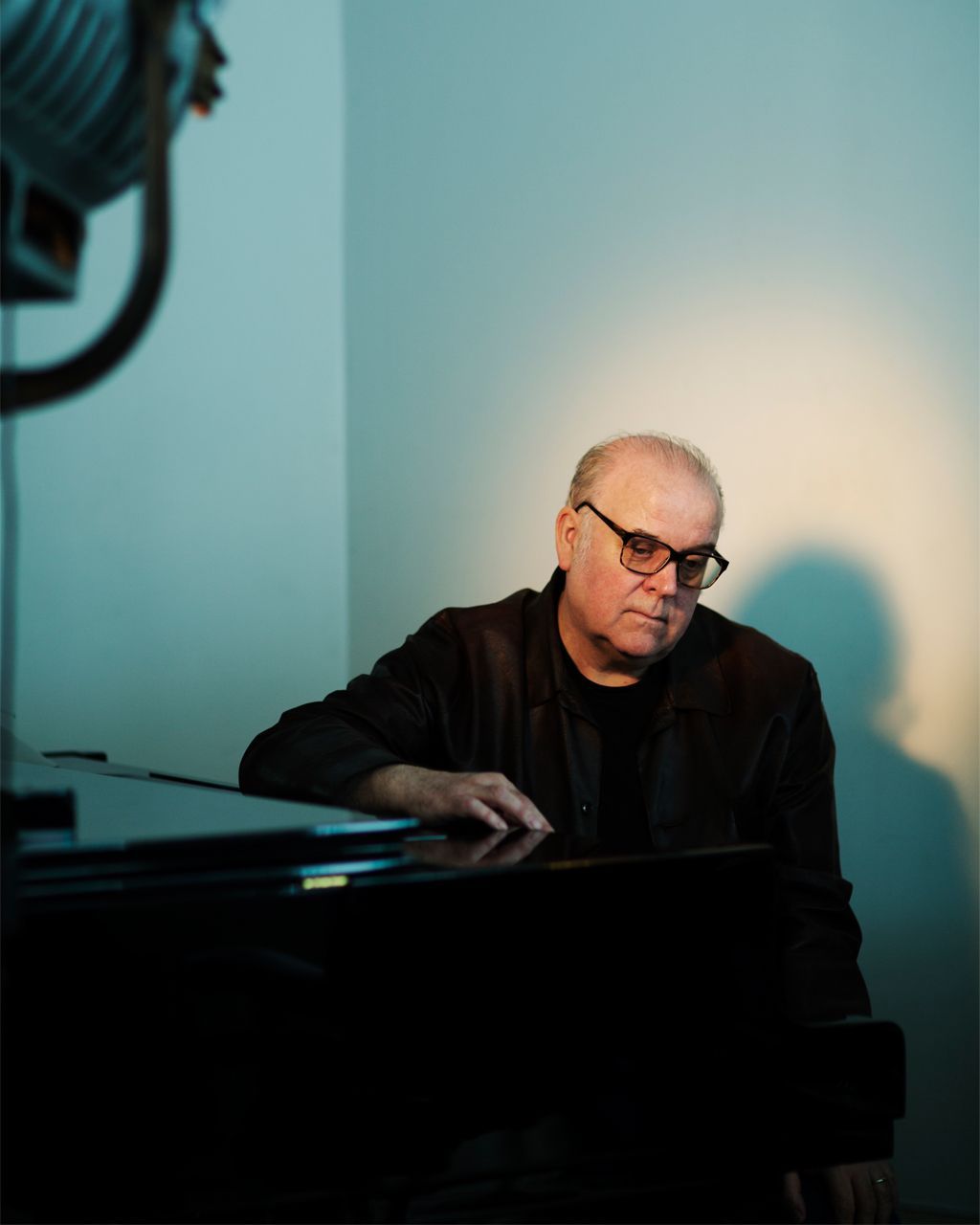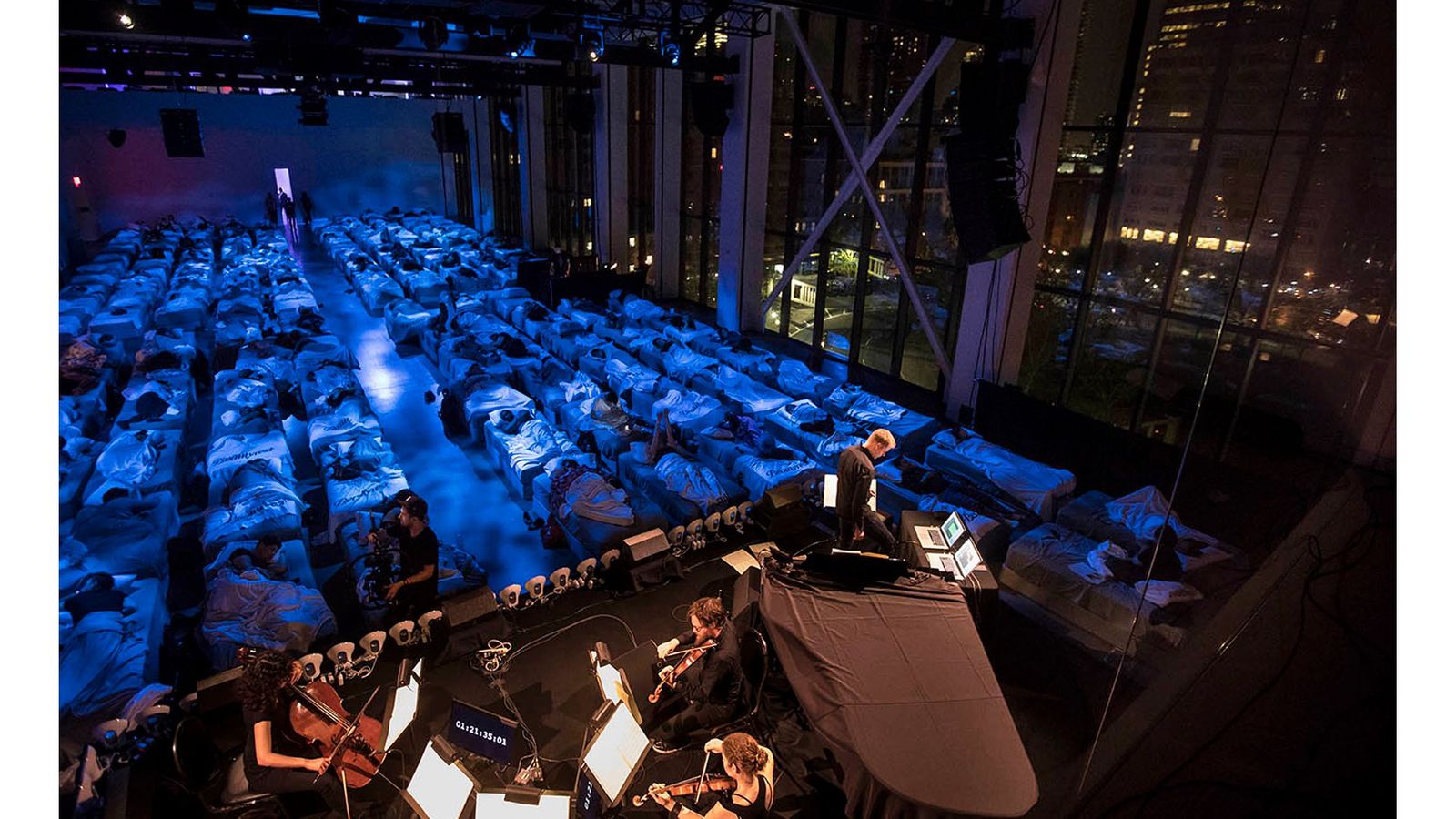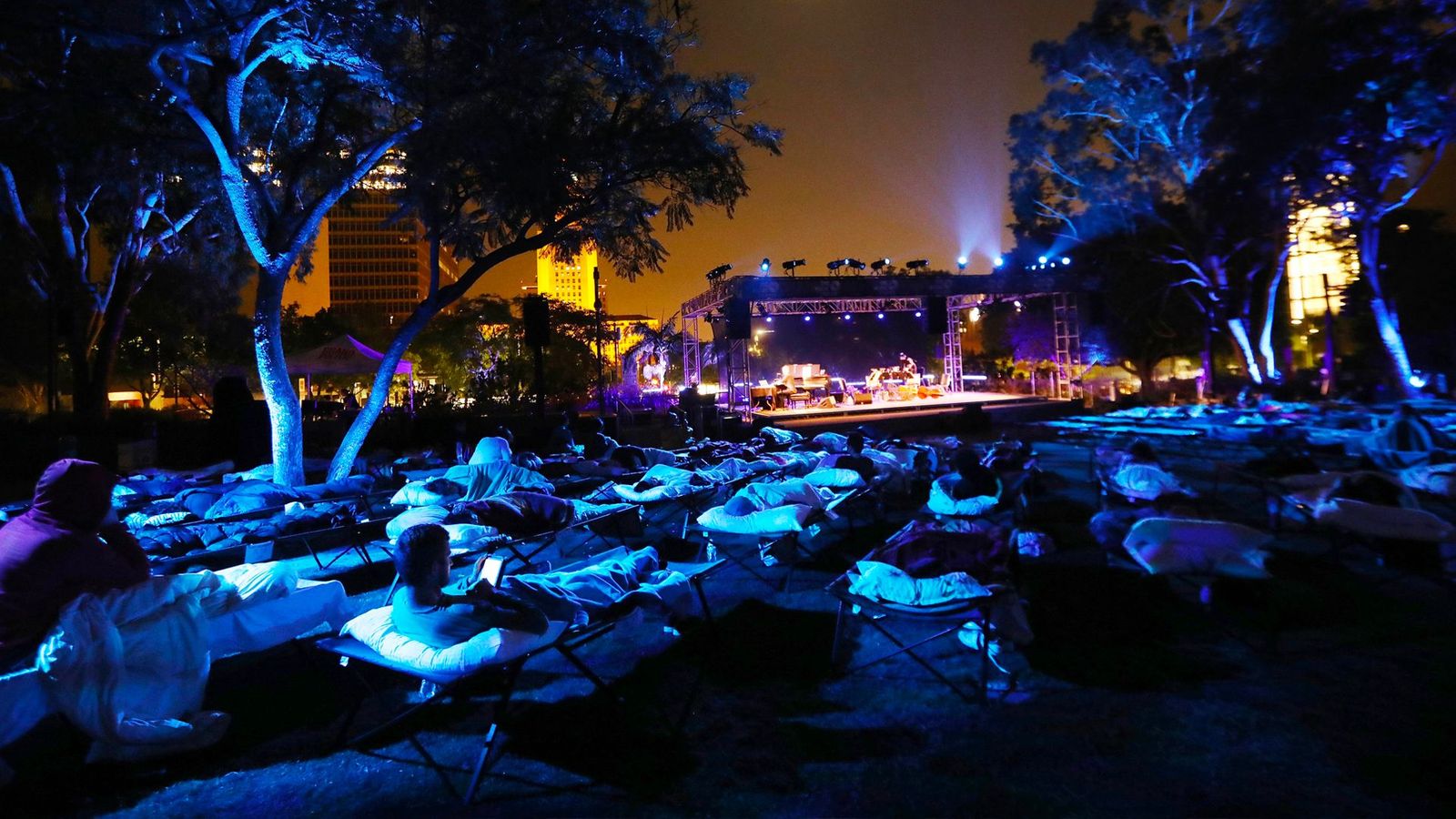
With his latest album, Armstrong has shifted to a different kind of soundtrack (Credit: Simon Murphy)
"The idea of calling this album Nocturnes was a practical thing; they're all written in the middle of the night," smiles Armstrong. "The form of a nocturne is not set. I think for a lot of musicians, it was a form that gave a lot of freedom; it doesn't have the straitjacket of making a massive statement. They're little vignettes that capture a moment. It's a concise emotional musical space."
At night-time, sounds also have a very different quality to the day; these senses probably do seem heightened – Armstrong
Armstrong's Nocturnes are fairly brief, ranging from between one and five minutes, but they're heartfelt and consciously hopeful expressions. He plays both piano parts himself, as lockdown precluded meeting other musicians ("With two pianos, you could get into very textural sounds; your ear doesn't quite know who's playing what, it's almost ambient"). The night moods are headily reflective rather than linear; Nocturne 11 is a tribute to much-loved Japanese artist Ryuichi Sakamoto's seemingly simple (yet intricately multi-layered) compositional style, while the elegant Nocturne 12 takes inspiration from a music box that once belonged to Armstrong's paternal grandmother.
"I guess there's the question of how you perceive time, at different points of the day," says Armstrong. "At night-time, sounds also have a very different quality to the day; these senses probably do seem heightened."
Blurred lines
Creative boundaries are arguably most blurred after dark. Night music obviously isn't restricted to Western classical realms; jazz standards are steeped in sleepless atmospheres (take Thelonious Monk's 1944 bebop classic 'Round Midnight). Awake late at night, we might feel drawn to revelry, or devotion (or both); Indian classical music has spiritual ragas associated with different times of the day (as well as various seasons). In The Times of India (September 2016), classical vocalist Pandit Jasraj described mesmerising Hindustani Malkauns as a form "sung during small hours of the morning, just after midnight. The effect of the raga is soothing and intoxicating."
The academic essay collection Nocturnes: Popular Music and the Night explores multi-genre night music scenes around the world, from London to Berlin, Tokyo and Yogyakarta, and posits that music is "redeemed" late at night, when it transforms from "background noise" to a pivotal force. Editors Giacomo Bottà and Geoff Stahl write: "Music animates the night by both mirroring and contributing to its tempo, stimulating movement within and between nightclubs, bars and music venues to give the city its nocturnal tenor and social power. Each feeds and amplifies the other's intensity, a cordoning off of social energies that affirms again night's difference to the more sedentary trappings of the day."

Max Richter has performed his eight-hour Sleep composition around the world, including in Sydney, Paris, London and LA (Credit: BBC/JA Films and Globe Productions/Mike Terry)
As a child, I sensed that the night-time could be an otherworldly playground (although I was also scared of the dark). By my late teens, staying up all night was a rite of passage, whether I was clubbing or completing essay deadlines. Night music always seemed to sharpen the senses – not just on the dancefloor, but beyond it: sound-tracking these nebulous hours, where one date bleeds into the next. Many contemporary songs capture that sleepless atmosphere, whether it's Faithless's 1995 club stormer Insomnia (with its "I can't get no sleep" refrain), The KLF's majestic rave-pop hit 3am Eternal (1991) or Tyree Cooper's seminal Chicago house track I Fear The Night (1986); enigmatic producer Burial also summoned heavy nocturnal moods on his self-titled 2006 album (including the elegiac track Night Bus). This year, British singer-songwriter Puma Blue (aka Jacob Allen) explored his personal long-term struggles with insomnia, on his excellent debut album, In Praise of Shadows. Puma Blue's expressions sound both exquisite and intensely raw, on woozy electro-soul melodies such as Opiate ("Sleep much longer than I did before… Bless these angels hanging over my head/ Still as a tomb, though, I'm scared instead because/ I must be losing my mind").
One of the most incredible live concerts I've ever experienced was an 11pm-7am continuous performance of Max Richter's "eight-hour lullaby" Sleep (2015), played to an audience in sleeping bags. I recall drifting in and out of slumber throughout the eight-hour set, and each time I resurfaced, I felt reassured by the musicians' presence, and cradled by the sounds – from womb-like sub-bass rhythms to an eventual "musical sunrise", gently elevating in volume and pitch.
We're on the screen all the time, which means we have to be 'on' all the time. I wanted to make a piece that could function as an antidote to that – Max Richter
Richter developed Sleep in collaboration with neuroscientist David Eagleman, with nods to classical inspirations such as Johann Sebastian Bach's Goldberg Variations (1741), which were commissioned by an insomniac diplomat; rising star pianist Pavel Kolesnikov will also perform the Goldberg Variations as a highlight of this year's BBC Proms, on 10 September.
When I interviewed Richter, he explained: "Sleep comes out of a really personal feeling. I was getting really exhausted by the increasing virtualisation of our lives; we're on the screen all the time, which means we have to be 'on' all the time. I wanted to make a piece that could function as an antidote to that and reclaim some basic human things from the technological mode of existence. I've always felt like sleep is the great reservoir, where we can connect to something that's bigger than us – so I wanted to encourage that, and also make a political piece that's about stepping off the treadmill.

Richter calls Sleep a "personal lullaby for a frenetic world… a manifesto for a slower pace of existence" (Credit: Getty Images)
"One of the other starting points with Sleep was very direct; when our kids were little, I would go off and play a show which would be streamed or on the radio, and Yulia [Mahr, Richter's wife] would often hear the show in some weird time zone, in the middle of the night. This boundary layer when you're half-asleep, we started thinking about that as a space for music to happen. Performing Sleep live is kind of like extreme sports," he added. "I have hundreds of pages of piano music, and it's a physical challenge. I have to get 'jetlagged' so that it's 'morning' when I go on."
Another contemporary talent who has taken inspiration from sleepless hours is composer/musician Anna Meredith, in her beautifully haunting 2011 work Four Tributes To 4am, based on nocturnal recordings around the city of Derby. "I think I'd read this depressing statistic that more people die at 4am than at any other time," muses Meredith. "I've always found 4am a bit of a 'no-man's time'; 3am is like good times from the night before, and 5am might be an early start, but you might not know where 4am fits in terms of yesterday and the next day.
"I had an idea of doing these mini-portraits of what different parts of the town feel like at 4am. My sister [film-maker Eleanor Meredith] and I did an all-nighter, trawling around the dual carriageway with our recorders – the houses, the clubs at the end of the night, the park, the dual carriageway with cars passing by, an out-of-town shopping mall that was totally deserted apart from a few security guards. I remember deliberately slowing the tempo down to create this weighty, unwieldy atmosphere, before gradual awakening in the final movement. You're awake at this 'magic hour' when everyone else is asleep and at their most vulnerable. It feels like you've tapped into a secret."
That sense of discovering secrets and subverting codes is also what makes night music so powerful; we are sleepless but hyper-sensitive – and as Armstrong also notes with his Nocturnes, there is the promise of emerging through the darkness, into a new light.
No comments:
Post a Comment